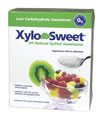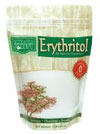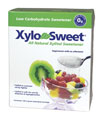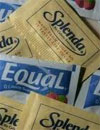5 All Natural & Dental-Friendly Sweeteners You’ll Love
If there’s a hate/love relationship we all as human beings share, it’s our relationship with sugar.
Think about it. Sugar is sweet; it tastes good and makes other things taste good. It gives dessert its taste and ultimately appears in so much of our food that we don’t know what we’d do without it.
On the other hand, sugar does a number of bad things to our bodies. It creates an insulin response. Overconsumption of it can eventually lead to metabolic problems like diabetes. It may even lead to high blood pressure and heart disease. And when you consider what sugar does to our teeth, well, you’ll probably start realizing just how bad sugar can be.
The problem is, many of us with this hate/love relationship still love the sweet taste of sugar more than we hate the consequences of overconsumption. So how do we, so to speak, ha ve our cake and eat it, too? Simple: dental-friendly sweeteners that won’t do to your body what sugar does.
ve our cake and eat it, too? Simple: dental-friendly sweeteners that won’t do to your body what sugar does.
1. Xylitol. Admittedly, it has a funny name; it reads more like something that would make your whipped cream more bitter than it would sweet. But Xylitol is surprisingly healthy, especially if you’re someone who needs to be on a low-sugar or low-carbohydrate diet. Xylitol is a natural sweetener found in birch trees that has a chemical structure that keeps it protected from the bacteria in your oral cavity. In other words, it doesn’t rot your teeth like sugar, even if it makes foods sweeter. Sound like a good deal?  Good, because now you know about Xylitol and there’s no excuse no to check it out further.
Good, because now you know about Xylitol and there’s no excuse no to check it out further.
2. Erythritol. Another sugar substitute discovered by people who need to avoid sugar in its natural state, Erythritol is a sweetener that is added to items like power bars, candy bars, desserts, and sauces in order to make them taste sweet. It is a sugar alcohol, like Xylitol, which is something you may want to consider if you’re avoiding sugar alcohols, but ultimately Erythritol does not have the same effects on your teeth that eating sugar does. Your dentist might wonder if you gave up desserts altogether, but you’ll know the truth.
 3. Isomalt. Speaking of sugar alcohols, here’s another one that is derived from sugar but is only half as sweet as the source. In other words, with Isomalt you get half the sweetness of sucrose but a major reduction in the types of tooth problems. One thing to consider with Isomalt is that bacteria can adapt to its use, so it’s best to use this in moderation.
3. Isomalt. Speaking of sugar alcohols, here’s another one that is derived from sugar but is only half as sweet as the source. In other words, with Isomalt you get half the sweetness of sucrose but a major reduction in the types of tooth problems. One thing to consider with Isomalt is that bacteria can adapt to its use, so it’s best to use this in moderation.
 4. Stevia. A sweet plant, Stevia is far sweeter than sugar and only needs to be used in slight amounts – it’s often packaged along with dextrose in order to give it the same consistency as a food additive as, say, Splenda. Stevia is great because it may even help your teeth as opposed to rotting them; some studies suggest it may help hinder the growing of plaque.
4. Stevia. A sweet plant, Stevia is far sweeter than sugar and only needs to be used in slight amounts – it’s often packaged along with dextrose in order to give it the same consistency as a food additive as, say, Splenda. Stevia is great because it may even help your teeth as opposed to rotting them; some studies suggest it may help hinder the growing of plaque.
 5. Sucralose. How can we forget about one of the most famous sugar alcohols? Many dentists recommend switching to Sucralose as a valid alternative to sugar; its taste has made it popular across the country.
5. Sucralose. How can we forget about one of the most famous sugar alcohols? Many dentists recommend switching to Sucralose as a valid alternative to sugar; its taste has made it popular across the country.
Chris Turberville-Tully is a marketing strategist for Dental Implants Clinic, a group of UK dentists dedicated to keeping your smile healthy, bright and beautiful. To learn more, click here.
You must be logged in to post a comment.